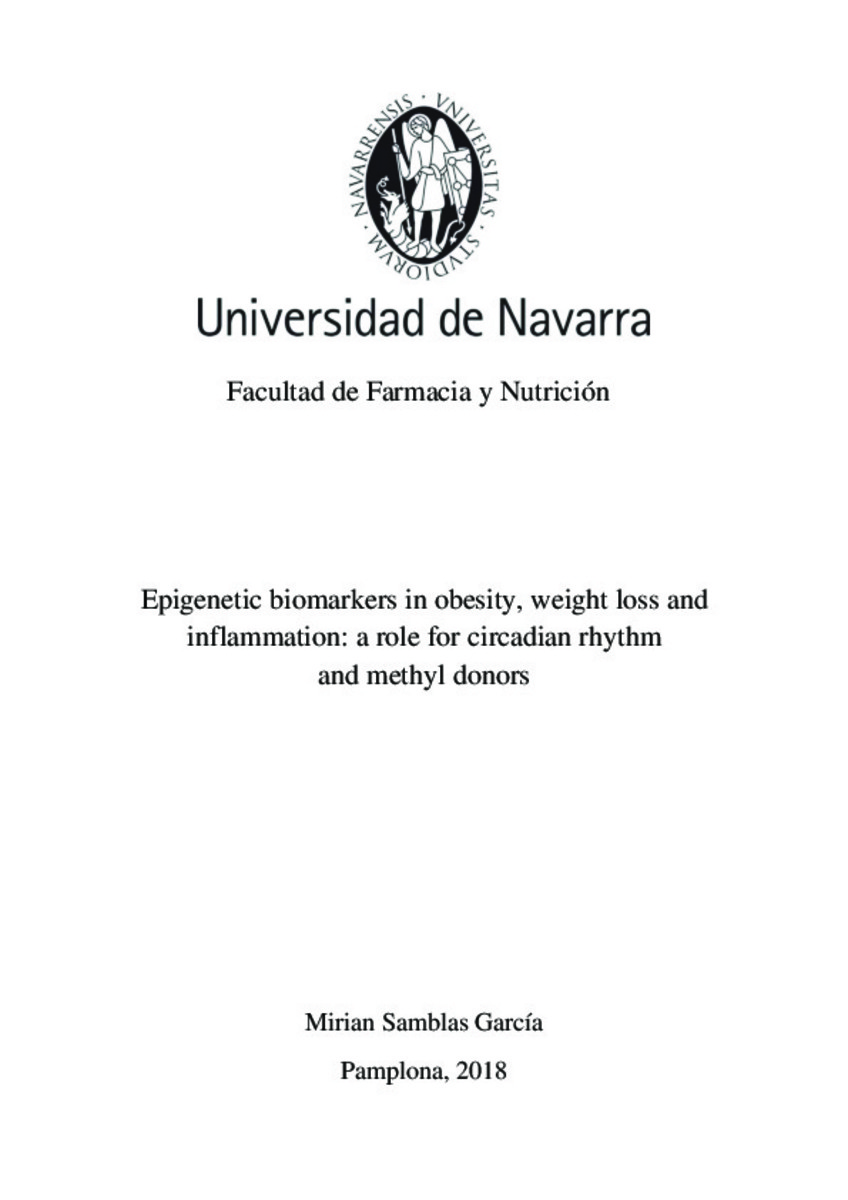Epigenetic biomarkers in obesity, weight loss and inflammation: a role for circadian rhythm and methyl donors
Files in This Item:
Statistics and impact
Items in Dadun are protected by copyright, with all rights reserved, unless otherwise indicated.







